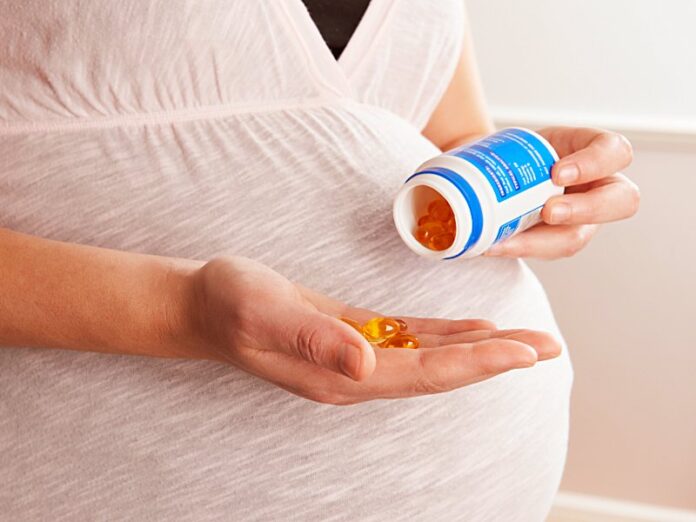Although the Royal College of Obstetricians and Gynaecologists (RCOG) has long urged pregnant women to take vitamin D supplementation, no scientific evidence has proven whether such a course of action is safe. Furthermore, it has led to confusion about how best to advise women. Generally speaking, pregnant women should be tested to determine whether they are vitamin D deficient and treated if necessary.
Fish and seafood contain vitamin D
Because most Americans do not get adequate levels of vitamin D, supplementation is recommended for pregnant women. The good news is that fish and seafood are natural sources of vitamin D. In addition to the high vitamin D content, fish and seafood contain other essential nutrients, such as zinc and iron.
In addition to providing vitamin D to the body, fish and seafood also contain omega-3 fatty acids. These acids are found in certain fish, such as salmon and anchovies. They are also found in flaxseeds and leafy greens. However, they may not be the best choice for pregnant women trying to reduce their salt intake. If you are concerned about the high salt content in fish, you may want to avoid pickled herring. However, canned sardines are a great source of vitamin D, with a 3.5-ounce serving providing 193 IU or 24% of the DV.
Low-dose vitamin D supplementation reduces the risk of fetal or neonatal mortality.
Studies have shown that low-dose vitamin D supplementation is associated with decreased fetal and neonatal mortality rates. In addition, supplementation during pregnancy is associated with reduced rates of recurrent wheeze, asthma, and neurological complications. Conversely, infants with low dietary vitamin D levels risk developing rickets and other neurologic complications. Several studies have also linked low vitamin D levels in the mother to abnormal infant outcomes, including increased blood alkaline phosphate levels, larger fontanelle size, and neonatal hypocalcemia.
Another study found that low-dose vitamin D supplementation reduced the risk of fetal or neonatal death by a third. This study was conducted in low-income countries and was designed to evaluate the effects of vitamin D supplementation on fetal or neonatal mortality. The study authors identified several genes associated with vitamin D synthesis and metabolite levels, which are associated with a higher risk of fetal and neonatal mortality in neonates.
Effects of vitamin D supplementation on maternal 25(OH)D levels
In one recent trial, researchers randomized 180 pregnant women to receive either 800 IU of ergocalciferol daily or 200,000 IU of cholecalciferol bolus in the third trimester of pregnancy. The mother’s baseline 25(OH)D was deficient, around ten ng/mL. Although vitamin D supplementation increased maternal 25(OH)D levels, a modest but significant effect was seen in neonatal blood.
Although fetal hypercalcemia is a relatively old concept, the authors of this study found that some of these hypercalcemias were actually due to a disorder called William’s syndrome, a response to excessive vitamin D. Fortification of milk and cereals in the United Kingdom increased the number of infant hypercalcaemias. However, when the fortification was restricted, the number of cases decreased by half. Further, some studies have shown the teratogenic effects of vitamin D supplementation in animals.
Two previous trials, including 1688 women, found that vitamin D supplementation reduced the risk of preeclampsia. However, the results of these trials were inconsistent. Other studies have found a possible relationship between vitamin D supplementation and a decreased risk of preeclampsia, although further studies are needed to verify this association. The effects of vitamin D supplementation on the risk of preeclampsia were not significantly different between groups.
Safety of vitamin D supplementation during pregnancy
Some health professionals have questioned the safety of vitamin D supplementation during pregnancy. The Royal College of Obstetricians and Gynaecologists supports using vitamin D supplements during pregnancy. Still, there has been a lack of evidence that it reduces risks for both mother and baby. It has confused how to advise pregnant women. The best advice is to be tested for vitamin D deficiency and treated if required.
In the current study, pregnant women could begin vitamin D supplementation at 12 to 16 weeks. Women were assessed for gestational age based on their last menstrual period or an obstetrical estimate. Women who were unsure about their gestational age were given a revised gestational age. A study of vitamin D supplementation during pregnancy can help determine whether supplementation is safe.










![Anso FG Reviews: UPDATED 2024 [ansofg.com] Anso FG Reviews UPDATED 2024 [ansofg.com]](/wp-content/uploads/2023/12/Anso-FG-Reviews-UPDATED-2024-ansofg.com_-100x70.png)







